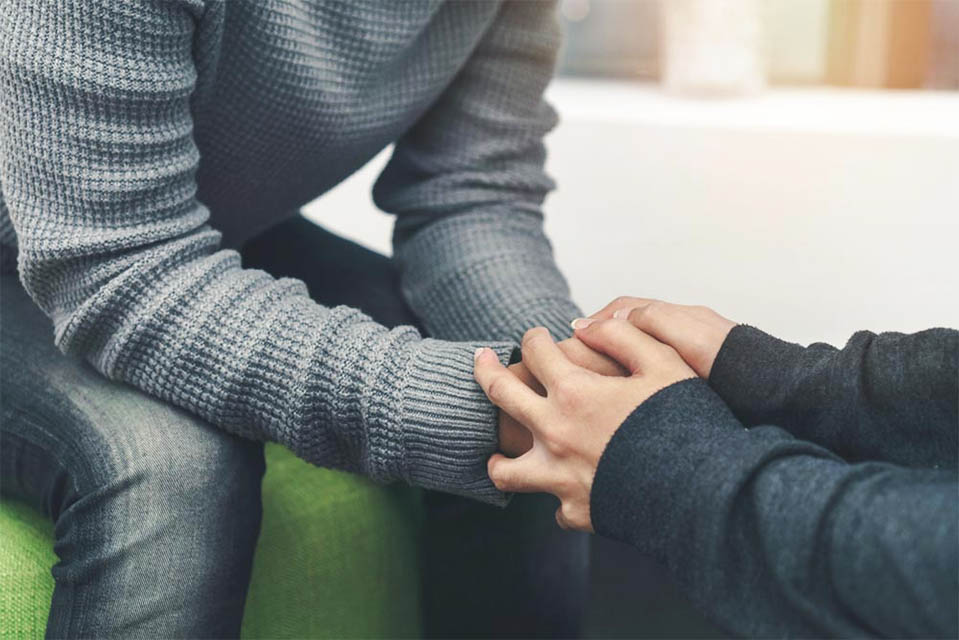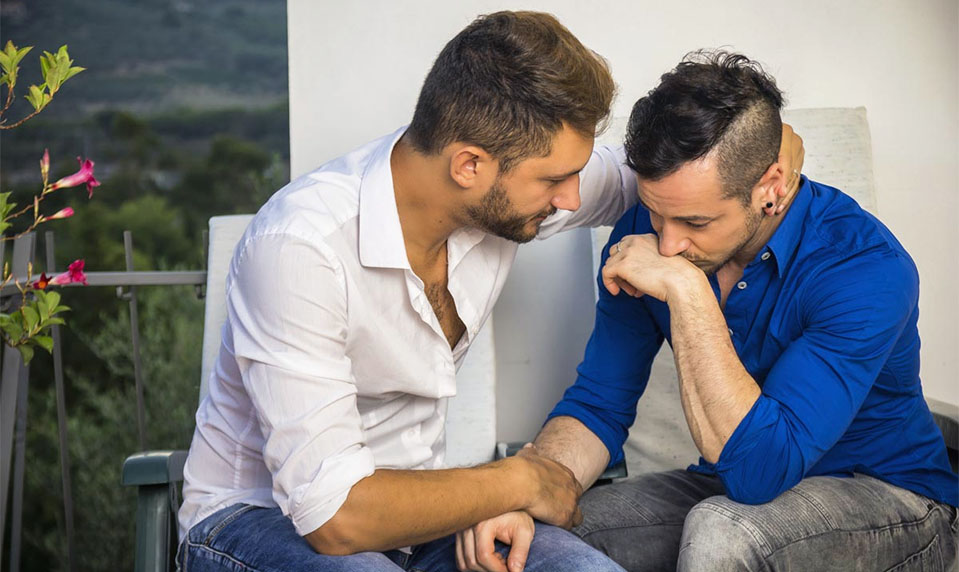Today, 4.5% of the U.S. population identifies as LGBT. At the same time, a much higher percentage of the LGBT population struggles with substance abuse and addiction. Modern drug and alcohol addiction treatment programs are more tolerant of gay and lesbian patients than ever before, but simple tolerance is not enough to create quality treatment. With numerous factors relating to non-acceptance, gay culture, and homophobia contributing to the increased likelihood of drug abuse, persons looking for gay-friendly addiction treatment need personalized treatment designed to tackle the unique contributors to their addiction.

Modern gay-friendly addiction treatment facilities can offer this care, as the medical world broadens its understanding of both addiction treatment and homosexuality. If you or a loved one is addicted, seeking out this specialized treatment can help them to tackle drug-usage problems relating to the complex factors influencing it, so that they can move on.
What Factors Do Gay-Friendly Addiction Treatment Centers Have to Tackle?
Homosexual individuals are often raised in high-stress environments, where they are exposed to homophobia, insecurity, lack of personal identity, and fear. Gay patients experience a completely different psychosocial environment and social environment than a straight individual, meaning that their experiences and therefore problems are different.
For example, it would be more common for a gay person to struggle with issues relating to:
- Socialization and isolation
- Family rejection
- Intimacy and rejection issues
- Development of self-identity
- Poor emotional health
- Mental disorders such as depression and anxiety or suicidal ideation
- Social stigmatization /hiding personal identity
- Internalized homophobia
- Large exposure to domestic violence
Many of these problems are relatively endemic to gay patients, as many would not experience these issues outside of the LGBT (Lesbian, Gay, Bisexual, Transgender) spectrum. In the case of persons also struggling with a gender as well as sexual identity, these problems can be amplified significantly.
Gay men and women are also highly at risk for co-occurring health problems and disorders. Any gay-friendly addiction treatment center must be equipped to handle dual diagnosis treatment and work to treat mental disorders alongside addiction. It is also important that these facilities be able to treat HIV and Hepatitis C or allow for treatment during rehabilitation.

What to Look for in a Gay Friendly Addiction Treatment Center
While more and more addiction treatment centers offer specific gay-friendly facilities, there are still numerous barriers to seeking treatment. Choosing a gay-friendly treatment center means looking at options that account for those barriers by providing training, assistance, and support for gay-specific factors in recovery.
Dual-Diagnosis Support – LGBT drug addicts are more than 4 times as likely to experience problems with depression, anxiety, and PTSD. This can relate to upbringing, Adverse Childhood Experiences (Ace), homophobia, isolation, or a number of other problems, but will complicate recovery. Your addiction treatment center must be able to provide mental health treatment for addiction, or the patient will very likely relapse as soon as they leave recovery.
Trained Staff – Lack of culturally appropriate treatment and lack of trained personnel in treatment facilities is a primary barrier to many seeking out treatment. For example, many gay men are afraid to seek out treatment from a facility that will house them in a group, partially out of fear of homophobia or repercussions. Ensuring that the facility has staff on hand, who are trained in meeting the needs of gay addicts, will help to combat this problem. For example, trained staff can recognize homophobia when it occurs, can work to ensure the patient stays safe, and can recognize when problems arise relating to individual problems with isolation, social discrimination, and culture.
As many as 40% are likely to delay treatment due to expected or experienced discrimination, lack of respect, or outright homophobia during initial sessions or counseling. A gay-friendly addiction treatment center has to train staff, offer LGTB-specific services, and have an active anti-discrimination policy in place.
Open Treatment Policy – It’s important that any gay-friendly addiction treatment facility practice openly supporting gay patients. This can include creating gay-specific programs, openly and actively sharing sexual identity with each other, actively punishing and isolating patients who display homophobia or intolerance, and otherwise working to make recovery areas a safe space for LGBT addiction treatment clients.
While this might not seem like too much of a problem, one in 5 LGBT persons fail to disclose their gender or sexual identity when seeking treatment. Hiding sexual identity during treatment results in increased chances of psychological distress, decreased effectiveness of treatment, and the reduced chance that treatment will be able to tackle the actual problems the individual is facing.
Health Problems – Gay men are more likely to suffer from HIV or Aids, HPV, STDs, and Hepatitis than most straight individuals. This partially relates to the large party culture in the gay scene, but also relates to lack of education, poor safety standards, and poor protection for the gay community. A gay-friendly addiction treatment facility should be able to make room for potential health problems requiring long-term medical treatment and thus any necessary medications required.
While many people seek out addiction treatment without disclosing their sexual identity, this can be a mistake. Gay persons experience a great deal of emotional and social stress and trauma that a straight person would likely never be exposed to. Treating this and creating coping mechanisms for it through behavioral therapy and counseling is one of the keys to successfully treating addiction. This means that any rehabilitation facility you seek out must be openly and actively gay friendly, so that you or they are not afraid of full disclosure.
Addiction affects millions of people in the United States and gay individuals are more at risk than heterosexuals. If you or a loved one is struggling with a substance, it’s important to seek out help. While not every recovery facility will be LGBT friendly, you can look for specific programs and offerings that will translate to gay-friendly addiction treatment. Getting this treatment will affect the quality of care, the individual’s mental health during treatment, and the structure of the treatment, giving your loved one their best chance at recovery.


















